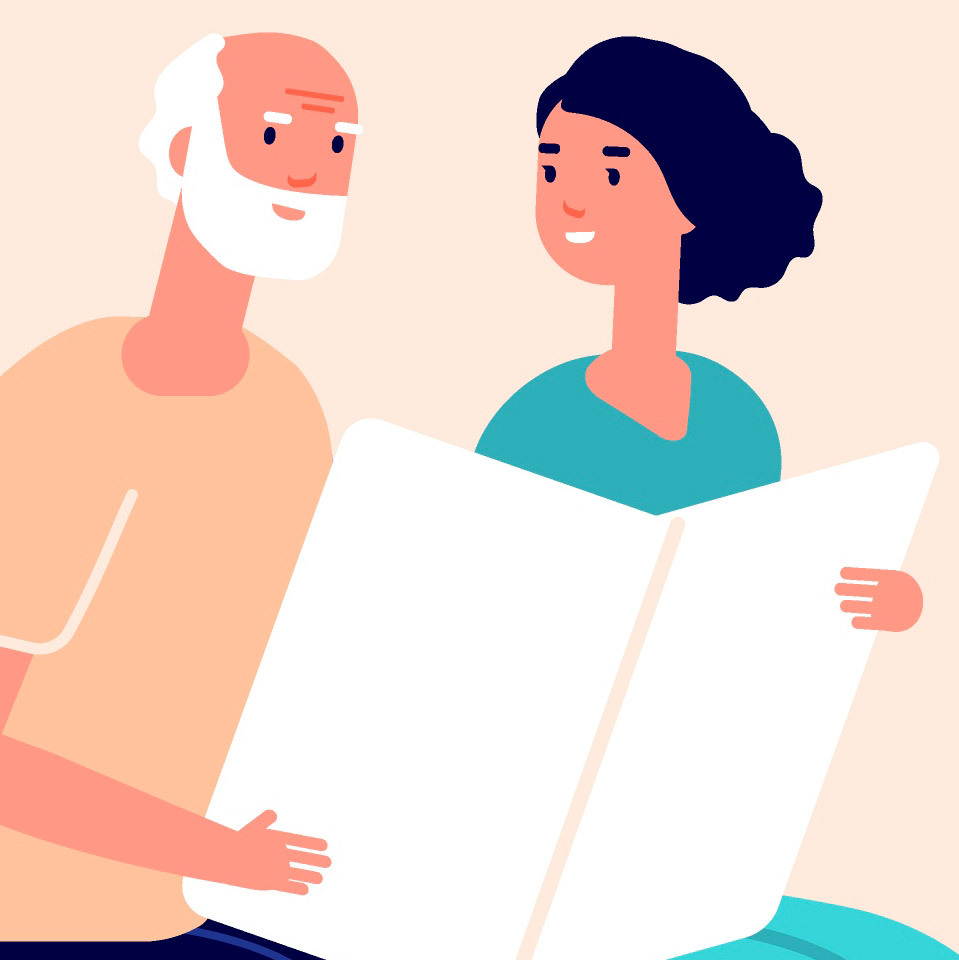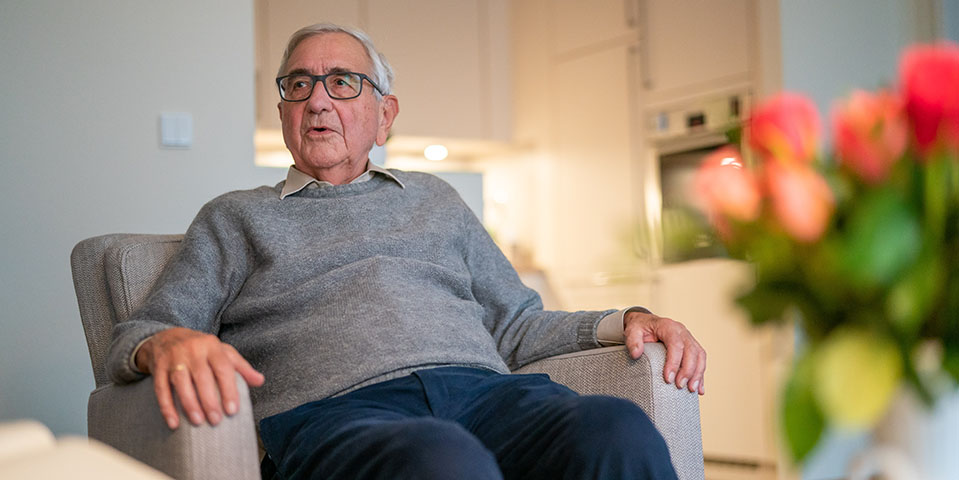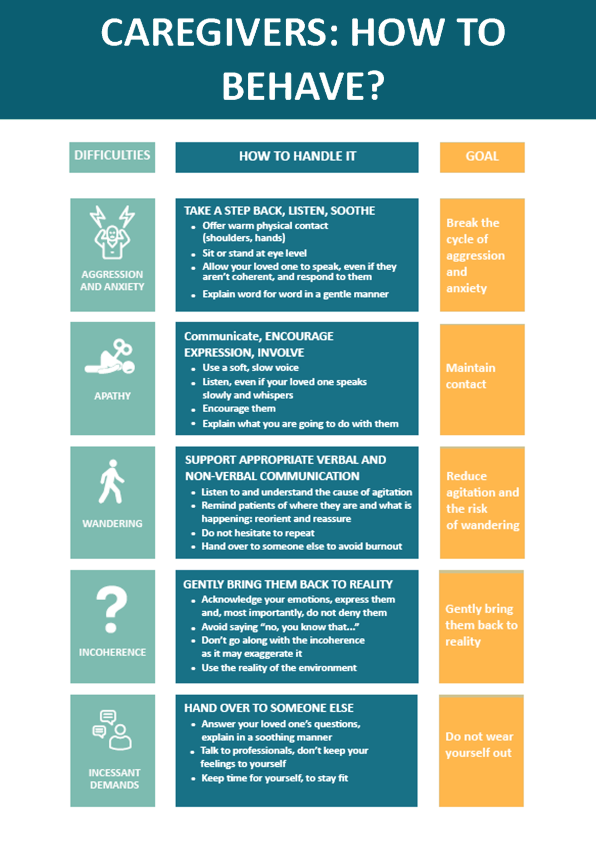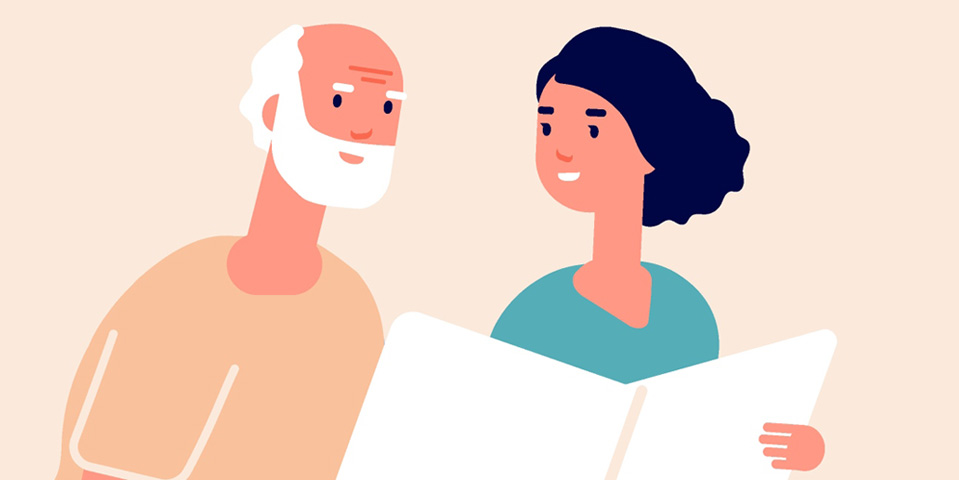Alzheimer's Disease
Being a caregiver
Alzheimer's is a difficult disease as its progression is slow, long and full of unpredictable events. During this process, the family often feels helpless in the face of confusing behaviour.
The right attitude

Agree to live from day to day
from hour to hour, without constraints and without an imposed rhythm; you will be less exhausted.
Think about adding up everything the patient does well
Think about everything your loved one does well, rather than focusing on what they can no longer do.
Surround yourself as much as possible
And give yourself time to rest.
Managing daily life
In order to support their loved one over the long term and preserve the family atmosphere, caregivers must not neglect themselves as the disease progresses.
When you find yourself in the position of a caregiver, you often think you can look after your sick relative on your own. However, it is essential to know how to schedule your time, to give yourself moments of respite, to protect both yourself and your loved one, and above all to surround yourself with the right people. Solutions exist to help you and to take over patient care:
- homecare services
- day visits to a facility, once or several times a week
- short stays in nursing homes
- outpatient clinics in the follow-up care sector
On a daily basis, knowing how to communicate, adopting appropriate activities and adapting the living environment are the keys to maintaining a good relationship with your loved one.
Organise regular activities
- Practise daily physical activity with your loved one to maintain their independence for as long as possible.
- Get out and enjoy plenty of daylight to help them find their bearings in time.
- Continue to involve your loved one in daily tasks, and in general, do not do everything for them (infantilising attitude), even if the attention deficit prevents them from finishing a task.
Ergonomics of the living environment: anticipating the risks of everyday life.
- Protect property and keep money, precious jewellery and chequebooks safe
- Keep your loved one away from hazardous fixtures.
- Provide a logical and fluid layout, without constraints, which allows them to orient themselves passively.
- Both day and night, illuminate the areas that your loved one will be looking for most (toilets etc.).
- Make space for an environment where they can live instinctively, as they please.
Learn how to communicate differently
- Face your loved one, at their level, when you address them and put a reassuring hand on their shoulder, waist etc.
- Express yourself clearly and simply (short sentences), in a calm tone.
- Reassure and encourage your loved one at all times, to spur them to remain active in their own life and to give them self-confidence.
- Never force or forbid, but support and distract to get what you want.
- Prioritise emotional memory
Find out here what tips you can use to adapt your communication to your needs.
Maintain good general health
- Monitor their weight, blood pressure and heart to avoid complications
- Ensure that they take their medication and continue to treat associated diseases (diabetes, hypertension etc.).
- Pay attention to daily nutrition and hydration, as it is important that their nutritional needs (in terms of calories and protein) are met. Stimulate their appetite and the desire to eat by offering their favourite dishes and think about splitting up meals by serving snacks during the day.
Caregiver cafés or Alzheimer's cafés
Many of the Group’s facilities organise informal meetings (cafés) for the families and friends of elderly people with Alzheimer’s disease.
 During these cafés, ORPEA professionals answer questions and provide advice and guidance to caregivers to help them take better care of their loved ones and improve their quality of life. These sessions offer professional help to many families that do not receive specialist support in dealing with the problems of their elderly relatives. In meeting other caregivers, families also share tips and any concerns they may have. These cafés also provide the opportunity to create trusted groups, where people in very similar situations can lighten their burdens and learn from each other. This in turn will enhance their well-being and that of the person they care for.
During these cafés, ORPEA professionals answer questions and provide advice and guidance to caregivers to help them take better care of their loved ones and improve their quality of life. These sessions offer professional help to many families that do not receive specialist support in dealing with the problems of their elderly relatives. In meeting other caregivers, families also share tips and any concerns they may have. These cafés also provide the opportunity to create trusted groups, where people in very similar situations can lighten their burdens and learn from each other. This in turn will enhance their well-being and that of the person they care for.
Testimonial: André's holiday

André is 72 years old. He has been caring for his wife for the past 5 years since she was diagnosed with Alzheimer’s disease.
His children – his son and daughter-in-law – have decided that at least once a week he should have a “day off”. On that day, he can do whatever he wants as long as he spends time on himself. “We agreed that it would be Wednesday. Even if I have nothing to do, if I just go for a walk or visit a shopping centre, I feel rejuvenated. I can go to the museum, to the cinema. It’s like having a holiday. My daughter-in-law takes care of my wife, I have complete trust in her”.
His son also persuaded him to take part in a workshop for caregivers organised by the local residence (EHPAD).
The aim of these cafés is to offer a dedicated place to exchange and meet other caregivers in a friendly setting. At Orpea, these meetings take place in the presence of professionals who give advice on how to better support sick loved ones.
For André, “Meeting other people who are in the same situation as me was a real breath of fresh air. We talked about our guilt and admit that we sometimes “crack”. We share tips, we have a good time and we leave recharged. “I’ll be going back regularly now for sure”. »




